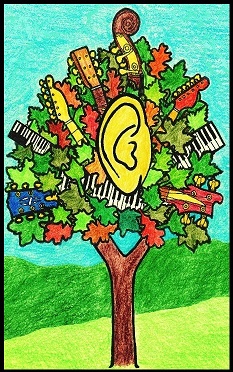 Accredited music schools have the best resources, equipment, instructors and connections. One good thing about accredited programs is they have a definite beginning and end. But if you look at accredited music schools as a product or service, then there are several possible drawbacks. In many ways, accredited music schools are the best. But they’re not for everyone.
Accredited music schools have the best resources, equipment, instructors and connections. One good thing about accredited programs is they have a definite beginning and end. But if you look at accredited music schools as a product or service, then there are several possible drawbacks. In many ways, accredited music schools are the best. But they’re not for everyone.
All types of accredited secondary schools face the same dilemma. The purpose of a school is to educate. That means educating as many people, as efficiently and effectively as possible.
A school where everyone graduates with an “A” might mean that school is doing a super-great job at educating its students. However, a school where everyone passes with high grades is perceived as a school with low academic standards. All accredited secondary schools face this basic dilemma. How your school responds to this fundamental dilemma can obviously have a big influence on your success or failure as a student.
Accredited schools have to work within restrictions which may not serve your interests as a consumer. You can choose courses and instructors, but you still have to fulfill the school’s degree plan. Accredited schools can’t turn on a dime to accommodate your individual needs, the way an unaccredited school can. You may or may not find what you’re looking for in the education you get at an accredited school. But if you pay your tuition, the one thing you are guaranteed is a grade on your permanent academic record from “A” to “F”. Once you receive it, you can’t change it or take it back.
A good thing about accredited programs is that you can research them beforehand. If you’re thinking about enrolling in a music course, find out what they teach in that course, and what books they use. Get the books as far ahead of time as possible, and go through them before you enroll in the course. The school won’t give you this year’s audition pieces until a month or so before the auditions, but can you get audition or sight-reading pieces from previous years? These days, they’re often at the school’s website. Because search engines cache that kind of stuff for years, this kind of online content isn’t always easy for schools to take down, even when they want to.
Read all music for your instrument that your school, or prospective school, has posted online. There’s always a chance you’ll be asked to read some of it during an audition. And there’s a very good chance you’ll be asked to read it at some point. It looks kind of dumb to bomb on a piece that’s posted online just because you didn’t bother to read it ahead of time.
If you have the luxury of time, take the time to learn future course material without deadlines. You can also make sure your playing skills are adequate for the courses you plan to take. The problem is that music courses often have high rates of drops and failures, especially if that course includes playing or performing. That’s why as far as your grades are concerned, it’s a good idea to learn as much material as you can on your own, and then take the course to get credit for what you’ve learned. That’s true for any college course, whenever you have the luxury of time. If you have that luxury, take advantage of it. Research, research, research.
A final reason for learning as much as you can before you take a music course is that the more you know going in, the more you can get out of your courses. If you’ve ever taken courses where you perform, then you know what I’m talking about. If you don’t have to spend all of your time learning basics, then you are freed up to focus on the more advanced aspects of your courses. You’ve got more time to pick your instructors’ brains. You get a lot more out of classes when you’re on top of your game than when you’re hanging on for dear life. But it’s a learning experience either way you do it. Back in the good old days, when college was still cheap, sometimes students would take courses more than once just for the experience.
Colleges today offer both classical and commercial music programs. Both classical and commercial music programs emphasize technical skills, sight reading and interpreting written music. The main difference is the repertoire, and the environment each one prepares you for.
Commercial music programs usually emphasize jazz standards with a small dose of classical music. Classical pieces are written in standard notation. Jazz compositions are usually written as Real Book-style charts with a single-line of staff for melody and symbols for the chord changes. You should learn to play the melody of any song you learn, even though piano, guitar and bass often don’t play the melody.
© 2019, 2020 Greg Varhaug